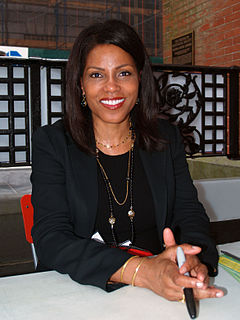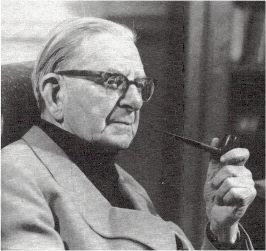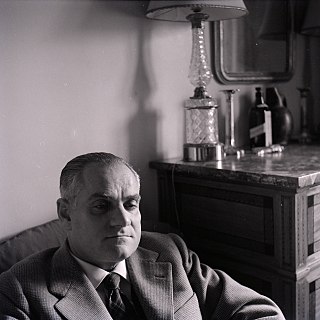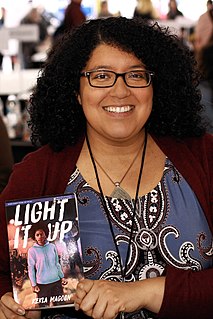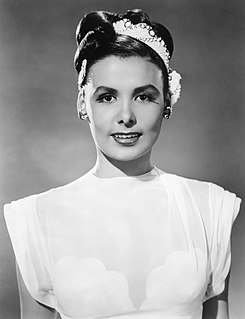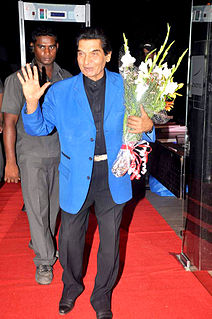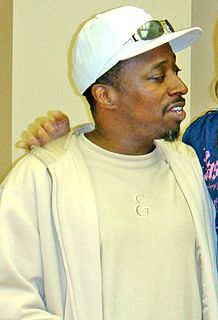Top 683 Malcolm X Autobiography Quotes & Sayings
Explore popular Malcolm X Autobiography quotes.
Last updated on April 14, 2025.
Elements within Malcolm's X own entourage, some of them were very angry with some of the changes that had occurred with Malcolm. One source of anger, curiously enough, was that - was the tension between MMI and OAAU, that the MMI, the Muslim Mosque Incorporated, these were women and men who had left the Nation of Islam out of loyalty to Malcolm, but then Malcolm continued to evolve rapidly.
Malcolm's X objective was actually to reingratiate himself within the Nation of Islam, that because he had emerged by the early 1960s as a very prominent figure outside of the N.O.I., there were critics within the organization that were saying to the patriarch of the N.O.I., the Honorable Elijah Mohammad, that Malcolm planned to take over the organization, which was not true.
I have always hated biography, and more especially, autobiography. If biography, the writer invariably finds it necessary to plaster the subject with praises, flattery and adulation and to invest him with all the Christian graces. If autobiography, the same plan is followed, but the writer apologizes for it.
Reminiscences, even extensive ones, do not always amount to an autobiography. For autobiography has to do with time, with sequence and what makes up the continuous flow of life. Here, I am talking of a space, of moments and discontinuities. For even if months and years appear here, it is in the form they have at the moment of commemoration.
When 'Malcolm in the Middle' was over, I was looking for a drama more than a comedy...but if it was a comedy that came up, it would have to be as well-written as 'Malcolm' was, and it would have to be a different kind of character than I played on that show. That's harder to come by. In drama, there were more opportunities, more options for me, and when I read ('Breaking Bad'), it was just, 'Good night, Nurse! I'm going after this sucker!'
People are more interested in reading bombastic ideas, whether they're positive or negative. Part of me has sort of lost interest in doing criticism because of that. I've always realized that criticism is basically autobiography. Obviously in my criticism, it's very clear that it's autobiography, but I think it's that way for everybody.
Malcolm: A karate master does not kill people with his bare hands. He does not lose his temper and kill his wife. The person who kills is the person who has no discipline, no restraint, and who has purchased his power in the form of a Saturday night special. And that is why you think that to build a place like this is simple. Hammond: It was simple. Malcolm: Then why did it go wrong?
I have asked James Shabazz, I've asked other people who are members of the OAAU, Herman Ferguson and others, what led to that disastrous decision [that the guards didn't carry weapons]? James Shabazz said to me with a shrug, you just didn't know Malcolm. Malcolm was adamant, and that whatever Malcolm wanted, that's what we just did.
I was more than anything a radical. I was more sympathetic to Malcolm X than Martin Luther King because Malcolm X was more of a radical who was willing to confront discrimination in ways that I thought it should be confronted, including perhaps the use of violence. But I really just wanted to be left alone. I thought some laws, like minimum-wage laws, helped poor people and poor black people and protected workers from exploitation. I thought they were a good thing until I was pressed by professors to look at the evidence.
There were internal critics, sharp critics, who were very opposed to [Malcolm X], and who were very - some of them were members of Elijah Mohammad's family, such as Herbert Mohammad, Raymond Shareef, who was the head of the Fruit of Islam, the brother-in-law of - the son-in-law of Elijah Mohammad. They isolated Malcolm X and kept him out of the newspaper of the organization Mohammad Speaks for over a year, which is kind of curious.
Over a period of about year-and-a-half, Malcolm X and [Alex] Haley agreed to work with each other. They met usually after a long business day that Malcolm put in very tired. He would get there at about - either at Haley's apartment or they would meet at then Idyllwild Airport at a hotel, and Malcolm would be debriefed by Haley. He would talk, Haley would take notes.
We like to think of the '60s as Martin Luther King, Jr. and Malcolm X and a little bit of friction - no, there were all of these different groups. There was the Student Nonviolent Coordinating Committee (SNCC), the Black Panthers, Martin and Malcolm, but also the Whitney Youngs of the world, the Bayard Rustins of the world.
[Malcolm Fraser] went straight from Melbourne Grammar to Oxford. And he would have been a very lonely person, and I think he probably met a lot of black students there who were also probably lonely. I think he formed friendships with them, which established his judgement about the question of colour. That’s my theory. I don’t know whether it’s right or not, but that’s what I always respected about Malcolm. He was absolutely, totally impeccable on the question of race and colour.
Landscape pictures can offer us, I think, three verities: geography, autobiography, and metaphor. Geography is, if taken alone, sometimes boring, autobiography is frequently trivial, and metaphor can be dubious. But taken together, as in the best work of people like Alfred Stieglitz and Edward Weston, the three kinds of information strengthen each other and reinforce what we all work to keep intact - the affection for life.
to look back on one's life is to experience the capriciousness of memory. ... the past is not static. It can be relived only in memory, and memory is a device for forgetting as well as remembering. It, too, is not immutable. It rediscovers, reinvents, reorganizes. Like a passage of prose it can be revised and repunctuated. To that extent, every autobiography is a work of fiction and every work of fiction an autobiography.
I believe that if we could see the chapters that are missing from the book [The Autobiography of Malcolm X], we would gain an understanding as to why perhaps - perhaps - the F.B.I., the C.I.A., the New York Police Department and others in law enforcement greatly feared what Malcolm X was about, because he was trying to build a broad - an unprecedented black coalition across the lines of black nationalism and integration. And in way, it presages 30 years ahead of time, the Million Man March.
Most people who read the autobiography perceive the narrative as a story that now millions of people know, and it was - it's a story of human transformation, the powerful epiphany, Malcolm's X journey to Mecca, his renunciation of the Nation of Islam's racial separatism, his embrace of universal humanity, of humanism that was articulated through Sunni Islam. Well, that's the story everybody knows.
Eclectic is a word that appears almost as much as the word smarmy in rock journalism and I've come to the fact, just as a personal side, this reminds of Oscar Wilde's insight that criticism is the highest form of autobiography. I think that's exactly what rock journalism has attempted to do, to celebrate its autobiography at my expense.
This autobiography of mine is a mirror, and I am looking at myself in it all the time. Incidentally I notice the people that pass along at my back - I get glimpses of them in the mirror - and whenever they say or do anything that can help advertise me and flatter me and raise me in my own estimation, I set these things down in my autobiography.
There were over 40,000 pages of FBI documents of which only about half are currently available to scholars and researchers. I think that this 40th anniversary of the assassination is a good opportunity for us to say that now is the time to declassify all FBI material on Malcolm X. There really is a need for us to challenge the US government for its refusal to open up its own archives 40 years after the death of Malcolm.



